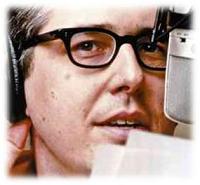A recent Nieman Journalism blog by Andrew Phelps leads with a glaring headline:
Ira Glass: ‘Who cares if radio survives? Something else will happen.’
Pretty inflammatory stuff, especially coming from a thoughtful, insightful radio professional and content creator.
 If you don’t know Ira Glass, you should. He’s the host and main force behind the wildly popular This American Life, a unique mash-up of documentary, performance art, and storytelling that is heard weekly on public radio stations everywhere. It is often at or near the top in weekly podcasts on iTunes, a true indication that throngs of listeners care very much about the unique content he creates.
If you don’t know Ira Glass, you should. He’s the host and main force behind the wildly popular This American Life, a unique mash-up of documentary, performance art, and storytelling that is heard weekly on public radio stations everywhere. It is often at or near the top in weekly podcasts on iTunes, a true indication that throngs of listeners care very much about the unique content he creates.
Glass is doing the kind of radio that many of us dreamed about when we were back in college or broadcast school. The difference is, Glass is doing it and making it work. He’s an independent thinker and a well-respected voice of public media.
So when he makes a statement like this, it’s going to attract some attention. However, if you dig deeper into Glass’ remarks at a panel late last month at WFMU’s Radiovision Festival, he goes on to talk about how radio always finds a way to survive.
But the comments from Glass that resonated with me make a broader statement about the media/technological times in which we live:
“There’s never been a better time to do creative work than right now. You can get stuff started. You can get it out to people. And you can turn it into a business if it’s decent. And there are more ways to get work to material. And it’s easier to get work. We are at a peak. Everything about our country is going to hell. Our politics, industry — like this is the one part of America which is actually going great.”
While the conversation in radio often revolves around consolidation and fewer executives and owners controlling more and more media outlets, Glass sees the opportunity to create content through a different point of view. And distribution has never been easier.
For so many of the people in media who have been displaced, the chance to inexpensively create content and get it out there via blogs, podcasts, social media, self-publishing – outlets that simply weren’t available just a few years ago – has never been better.
 At Summit 16 next month (December 7th, in partnership with the Arbitron Client Conference in Baltimore), NPR’s On The Media’s Brooke Gladstone will be one of our special guests as we look at radio through a 360° lens. Brooke has one of the most interesting perspectives on mass media through the show, co-hosted with curmudgeon/guru Bob Garfield. She is excited to share her views with a group of attendees that are there to learn and to grow.
At Summit 16 next month (December 7th, in partnership with the Arbitron Client Conference in Baltimore), NPR’s On The Media’s Brooke Gladstone will be one of our special guests as we look at radio through a 360° lens. Brooke has one of the most interesting perspectives on mass media through the show, co-hosted with curmudgeon/guru Bob Garfield. She is excited to share her views with a group of attendees that are there to learn and to grow.
We hope you can join us for this great event, also featuring the incredibly talented futurist and American radio fan James Cridland, the creator of the 140 Character Conferences Jeff Pulver, and Ed Schultz, a TV and radio star who is watching his profile get hotter as the political season warms up.
This year’s Summit lineup is one of our best ever and we hope to share some crab cakes and learning with you next month.
- A 2020 Lesson?It Could All Be Gone In A Flash - April 24, 2025
- How AI Can Give Radio Personalities More…PERSONALITY - April 23, 2025
- Can Radio Afford To Miss The Short Videos Boat? - April 22, 2025




My mom always used to tell me “Things happen for the best”. (Of course, one’s perspective of “the best” is all relative). Having spent the majority of my career in broadcast radio, I’ve encountered unemployment many times. It’s a badge of honor in radio, isn’t it? As I’ve reviewed that history, it’s been useful to connect the dots and appreciate what opportunities arose as a result of those temporary upheavals. Granted, the transition from old school broadcast to today’s multimedia platform environment can be more difficult & frustrating because we have to learn new skills, unlearn old notions, & reinvent ourselves just like our ancestors at the end of the 19th century had to transition from an agrarian to an industrial society. It’s tough & often painful but Ira’s right. Something will happen. It’s then up to each individual. To quote Don Imus quoting Yoda (there’s an image!): “Do or do not. There is now ‘try'”.
Buzz, thanks for your wisdom and perspective here. It is indeed a process. Appreciate you adding to the conversation.